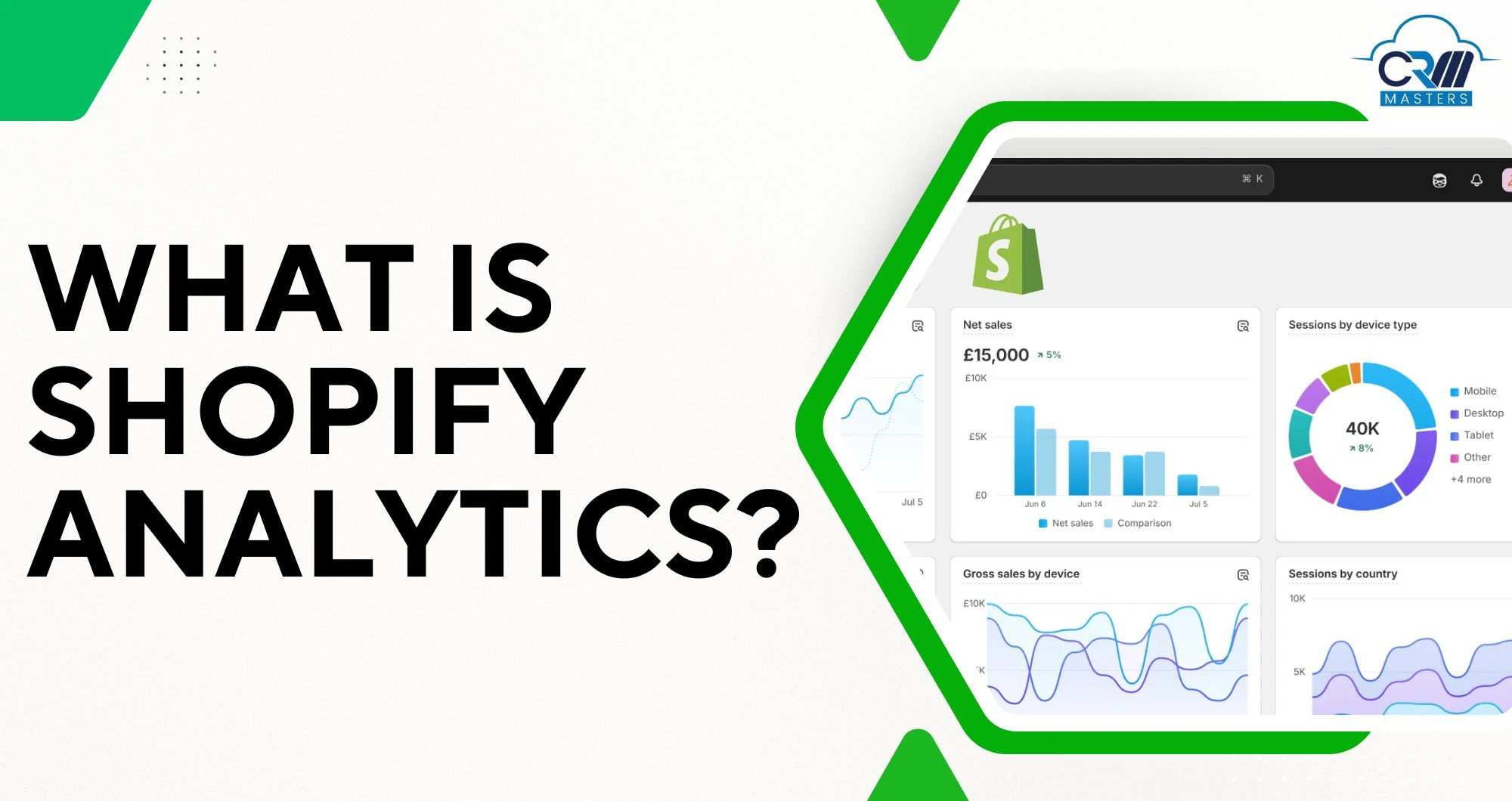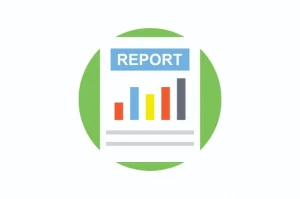
How Shopify Analytics Drives Business Growth?
Understanding how your online business is performing is crucial to its growth. Any business owner would love to leverage data to make decisions that generate more sales, enhance customer satisfaction, and simplify their work. This is where Shopify Analytics comes in market. You might be a fresh Shopify seller or a experience store owner, but analytics use is vital to get your store to its full potential.
In this blog post, we’ll explore what Shopify Analytics is, its benefits, and how it compares to Google Analytics. By the end, you’ll understand why Shopify Analytics is a game-changer for sales growth and how it can be the perfect tool for tracking and optimizing your store’s performance.
What is Shopify Analytics?
Shopify Analytics is a built-in tool that gives merchants detailed information about the performance of their online stores. It helps you to monitor critical metrics like traffic, sales, conversion rates, and customer behavior right from the Shopify admin dashboard. Shopify’s user-friendly interface makes it simple for merchants to analyze data, allowing them to make educated decisions without the need for third-party apps.
With Shopify Analytics, merchants can:
- Track revenue and sales data
- Monitor traffic sources and user behavior.
- Analyze customer demographics
- Measure the effectiveness of marketing campaigns.
- Keep tabs on inventory and product performance.
This powerful suite of tools helps businesses understand what’s working, identify problems, and find areas for improvement, all within Shopify.
Features of Shopify Analytics
1. Sales Report
Shopify Analytics gives you comprehensive data on sales that helps you to keep track of revenue, the number of orders, and the average value of each order.
2. Customer Behaviour
Businesses may examine customer behavior, such as how consumers move around their store, which items are in high demand, and where buyers might pause throughout the buying process.
3. Product Performance
Shopify Analytics provides information on how well each product is performing, assisting retailers in determining best-selling products and informing their marketing and inventory decisions.
4. Real-time Data
Real-time info from Shopify Analytics helps sellers know right away how their store is doing.
5. Financial Metrics
It has key financial measures like gross profit, net profit, and other financial data.
How Shopify Analytics Beneficial for Business Growth?
1. Real-Time Data Insights

Shopify Analytics provides real-time data, enabling merchants to assess how their store is performing at any given moment. Whether you’re analyzing current sales, monitoring customer activity, or adjusting to new marketing campaigns, this real-time data ensures you can make timely decisions that can drive sales and customer engagement.
2. User-Friendly Dashboard

Even if you don’t have a background in data analysis, Shopify’s easy-to-navigate dashboard provides all the information you need in an accessible format. The intuitive design allows you to access and interpret crucial metrics without getting lost in complex data.
3. Tailored Reports

Shopify offers customizable reports, allowing you to dive deeper into the specific metrics that matter most to your business. You can create reports based on sales, customers, and products, enabling you to track progress and trends over time. This flexibility makes it easier to monitor key performance indicators (KPIs) and adjust your strategy accordingly.
4. Integrated Marketing Tools

Shopify’s analytics seamlessly integrates with its marketing tools, such as email campaigns, social media ads, and discount codes. This makes it easier to track the ROI of your marketing efforts and optimize them for better sales performance. You can also connect third-party apps, enhancing your ability to fine-tune your marketing strategies.
5. Customer Behavior Tracking

Shopify Analytics tracks important customer behaviors, including what they browse, add to their cart, and eventually purchase. This allows you to personalize marketing campaigns, recommend products, and improve the overall customer journey, ultimately leading to more conversions.
Also Learn:- Benefits of Shopify Integration with Social Media Platforms
How is Shopify Analytics Better Than Google Analytics?
Shopify Analytics and Google Analytics are both powerful tools for tracking and analyzing website performance, but they serve different purposes and have their strengths. Here’s a comparison of how Shopify Analytics might be considered better than Google Analytics, specifically for Shopify store owners:
1. Easier Setup and Integration
Shopify Analytics is built directly into the Shopify platform. As soon as you set up your store, Shopify Analytics is ready to go. You don’t need to integrate or configure anything. The setup is seamless, especially for store owners without technical expertise.
Google Analytics requires manual setup, which might be complicated for beginners. You need to embed tracking code, configure eCommerce tracking, and customize goals, which can be tricky if you’re unfamiliar with the platform.
2. Simplified E-Commerce Focus
Shopify Analytics is specifically designed for eCommerce stores. It focuses on key metrics like sales, product performance, customer behavior, and order tracking. It provides easy-to-understand reports on important metrics like total sales, average order value, customer lifetime value (CLV), abandoned carts, and inventory performance.
Google Analytics offers in-depth analysis, but it isn’t designed specifically for eCommerce. Setting up conversion tracking and transaction tracking requires additional configurations, and eCommerce-specific reports aren’t as intuitive to access.
3. In-Depth Sales Reports
Shopify Analytics provides detailed, easy-to-read sales reports. For example, Shopify breaks down sales by product, variant, traffic source, location, etc. It also allows you to drill down into specific sales periods (day, week, month) and monitor trends over time.
Google Analytics doesn’t have pre-built sales reports, and while you can set up eCommerce tracking, you won’t find the same level of detail and ease of access to revenue-specific reports unless you manually configure them.
4. Abandoned Cart Recovery
Shopify provides built-in abandoned cart reports, which help you track customers who added items to their cart but didn’t complete the purchase. You can follow up with automated email reminders to recover these sales.
With Google Analytics, you can track abandoned carts with custom event tracking, It’s not as seamless or automatic as Shopify’s built-in tools for abandoned cart recovery.
5. Customizable Dashboards for Store Owners
Shopify Analytics provides customizable dashboards that give you a quick overview of your key metrics, like total sales, top products, and customer activity, all in one place. These are easy to interpret, especially for business owners who are not data specialists.
Google Analytics also offers customizable dashboards, but the setup process is more complex. The interface can also be overwhelming with data, making it harder to quickly pull out the metrics that matter most to a store owner.
6. Inventory and Product Tracking
Shopify Analytics tracks your inventory and product performance directly within the platform. You can quickly identify which products are selling well and which are not, helping you make data-driven inventory decisions.
Google Analytics doesn’t provide inventory tracking or in-depth product performance analysis unless you set up complex custom tracking.
Conclusion
Shopify Analytics provides a tailored solution that is specifically designed for e-commerce store owners. With its user-friendly interface, real-time data, and seamless integration with Shopify tools, it’s an indispensable resource for driving sales growth. By understanding customer behavior, identifying sales trends, and optimizing marketing campaigns, Shopify Analytics empowers merchants to make data-driven decisions that can lead to increased conversions and business success.
If you’re looking for an easy-to-use, e-commerce-focused analytics platform, Shopify Analytics is undoubtedly the better option for Shopify store owners.
Contact CRM Master’s Infotech, a trusted Shopify Partner that can help you to drive your sales growth and enhance your e-commerce strategy!












